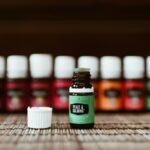If you’re curious about CBD oil, you’re not alone. It’s been making headlines as a natural remedy for all sorts of ailments, but today, I’m going to zero in on its potential for anxiety and stress relief. CBD, or cannabidiol, is a compound found in cannabis plants. Now, before you jump to any conclusions, it’s not the stuff that gets you high that’s THC, CBD’s more famous cousin.
So, how does it work for anxiety and stress? Your body has something called the ‘endocannabinoid system’, sort of a complex network that keeps things in balance homeostasis, the scientists call it. CBD oil interacts with this system, potentially affecting neurotransmitters in your brain. And guess what? They are the ones chatting away and could be influencing your mood and stress levels.
I’m not just going to tell you it’s all sunshine and rainbows there’s some science to consider. Studies suggest that CBD might reduce stress and anxiety by altering the brain’s receptor response to serotonin, that ‘feel-good’ neurotransmitter. But research is ongoing, meaning we’re discovering new things about CBD oil all the time.
Now, you might be asking, ‘Is this legal?’ And you wouldn’t be the first one. The question is simple, but the answer is a bit like a tangled ball of yarn. I’m going to unravel it for you in the next section, and we’ll explore the legal ins and outs of using CBD oil for anxiety and stress relief. So, stick with me we’re about to navigate the legal landscape of this holistic remedy.
Navigating the Legal Landscape: CBD Oil for Mental Well-being

I’m going to unpack the legality of CBD oil because understanding this is as important as recognizing its potential benefits. The legal status of CBD oil for anxiety and stress can vary significantly based on where you live. In the United States, for instance, the 2018 Farm Bill legalized hemp-derived CBD products, provided they contain less than 0.3% THC. However, the specifics can differ from state to state, so you’ll need to dig into local laws.
What about globally? Well, some countries have embraced CBD oil with open arms, prescribing it as a medical supplement, while others still have stringent laws against any form of cannabis or hemp products.
So, before you decide to use CBD oil for anxiety and stress, here’s what you can do:
First, verify the legal status of CBD in your jurisdiction. This isn’t just about avoiding legal issues; it’s also about ensuring that you’re obtaining quality, approved products.
Second, if you’re in a region where CBD is legal, I’d suggest looking for products that come with a Certificate of Analysis (COA). This document verifies the compound’s content, including the THC level.
Lastly, always remember to update yourself on the laws periodically. Regulations can change, and staying informed means you’re always on the right side of the law.
Now, with that settled, let’s talk about what you’ve been wondering: What can CBD oil actually do for your anxiety and stress? That’s going to include a look at both anecdotal accounts and what science has to say about it. So, in the next section, we’re going to delve into the potential benefits and not just take people’s word for it, but also see what the research suggests about using CBD oil to improve your mental health.
Potential Benefits Versus Risks: Evaluating CBD Oil for Your Health
When considering the use of CBD oil for anxiety and stress, you’re going to find out about both the appealing benefits and the potential risks involved. People are increasingly turning to CBD oil as a natural remedy for various conditions, and mental health is no exception. A number of studies have suggested that CBD oil may help reduce symptoms of anxiety and stress due to its calming effects on the nervous system.
This isn’t just about reducing anxiety; it’s also about enhancing your overall wellness regime. CBD oil has been linked to improvements in sleep quality and a reduction in inflammation, which can indirectly benefit anxiety and stress levels. Importantly, while CBD has shown promise, it’s essential to approach these findings with a critical eye, recognizing that research is still ongoing and not absolute.
You might be curious if there are any downsides. While CBD is generally well-tolerated, some users report side effects such as fatigue, changes in appetite, or digestive issues. It’s crucial to consider these potential risks and start with a low dose of CBD oil, gradually increasing it as needed to assess your body’s reaction.
I’m here to help you with understanding that your first attempt at using CBD oil doesn’t need to be your last. Adjusting your approach based on how your body responds is a wise strategy. Always choose something that resonates with your personal health needs and consult with a healthcare professional when in doubt.
You’re about to step into a more practical realm in the next section: determining the correct dosage and administration for your situation. Remember, individual experiences with CBD can vary, and what works for one person may not work for another. It’s all about finding that sweet spot where you experience the benefits while minimizing any potential risks.
Customizing Your CBD Experience: Dosage and Administration
I’m going to tell you about finding your sweet spot with CBD oil. It can be a bit of a balancing act. You want to make sure you’re taking enough to help your anxiety, but not so much that you experience side effects. Dosage can be influenced by a variety of factors, like body weight, metabolism, and the severity of your anxiety. That’s why starting low and going slow is a strategy I like to leverage.
You’re going to find out about how quickly you can expect CBD oil to start doing its job. Here’s the thing: it varies. Some people feel the effects almost immediately, especially with sublingual administration. Others might need a little more time, especially with oral forms like capsules or edibles. Also, consider that chronic stress versus a momentary anxiety spike might require different approaches.
Choose something that resonates with you when it comes to the method of taking CBD oil. Are you always on the go? You might like the convenience of capsules. Prefer immediate effects? Sublingual drops could be your best bet. Enjoying the experience can be just as important as the relief it provides, so don’t worry too much about experimentation to find what works.
Now, this leads us straight into the realm of how CBD oil interacts with other medications you might be taking. That’s pretty crucial and not something to take lightly. This includes common pharmaceuticals prescribed for anxiety and stress, and the last thing you want is an unexpected reaction. Always, and I mean always, consult a healthcare professional before adding CBD oil to your regimen if you’re on medication.
CBD Oil Interactions and Addictive Considerations
When turning to CBD oil for solace from anxiety and stress, it’s essential to understand its place among other treatments. That includes recognizing how it interacts with medications you might already be taking. I’ll talk you through the crucial steps for safely combining CBD oil with your existing medication regime.
Don’t worry too much about the addictive potential of CBD oil. It’s derived from hemp, not marijuana, and lacks the psychoactive THC that can lead to dependence. Still, I’m going to break down what you need to know to use CBD oil with confidence, without fear of forming a habit.
Finally, if you’re considering CBD oil as a part of your wellness routine, it’s always wise to have a chat with your healthcare provider. They can offer personalized advice and ensure that your journey with CBD is both safe and effective.









